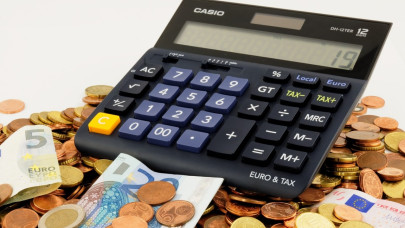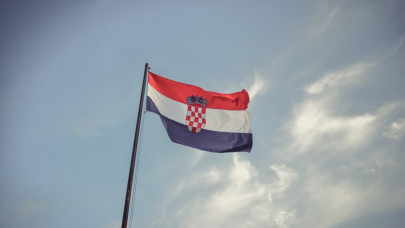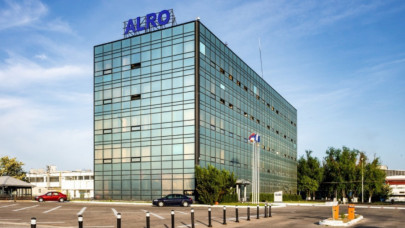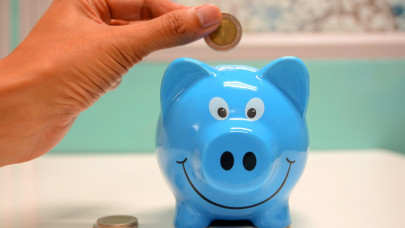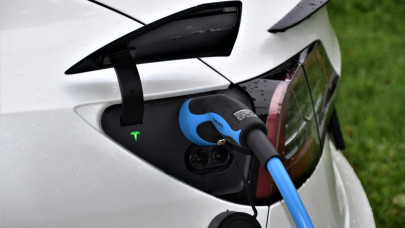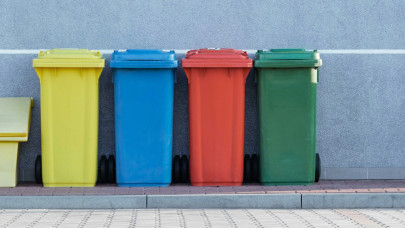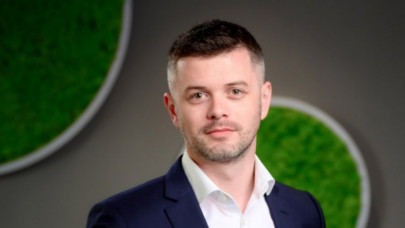Can you elaborate on Coca-Cola's specific goals for reducing its environmental footprint? This could include targets for water usage, waste reduction, and energy consumption.
One of the most recent initiatives on this front is the new PET flake decontamination unit installed in 2023 in the Ploiesti plant, the second largest plant within the Coca-Cola HBC Group, thus acquiring unique capabilities to produce recycled PET (rPET ) internally. The project is a pioneering initiative on the local market and uses an innovative technology through which it is possible to obtain recycled material compliant with food grade strict standards.
The investment supported the transition of the entire PET packaging portfolio of the Coca-Cola System in Romania to 100% recycled PET (rPET), by having the possibility of a constant supply of food grade recycled plastic. The great outcome of using rPET is the significant decrease in CO2 emissions, taking into consideration that recycled PET flakes have an 80% lower carbon footprint than virgin PET resin. At the same time, all the electricity used by this unit comes 100% from renewable sources. Moreover, the new unit supports the Romanian economy by procuring more and more PET flakes from the local market and therefore maintaining local investments.
These initiatives related to our packaging are also concrete steps that our company is taking towards another goal: a World Without Waste – the global strategic vision that's tackling packaging waste issue through concrete actions, looking at packaging's full life cycle - from how our packaging is designed and manufactured to how it's reused or collected and recycled. Our strategy includes making 100% of our packaging recyclable globally by 2025, Romania being among the countries that have already achieved this goal. We also aim to use at least 50% recycled material in our packaging by 2030, collect and recycle a bottle or can for each one we sell by 2030 and bring people together to support a healthy, waste-free environment.
In addition, other actions that we'll bring us closer to reaching net zero emissions in 2040 are providing energy-efficient and eco-friendly coolers to customers, reducing emissions from agricultural ingredients and implementing the “Green Fleet” programme to switch to low and no carbon alternatives.
But not only carbon emissions and packaging waste are in our focus. At the same time, water is a priority for our system, being the primary ingredient of our products, central to our manufacturing process and necessary to grow the agricultural ingredients that we use. We have set ourselves a clear mission to reduce water used per liter of beverage by 20% by 2025, compared to the 2017 baseline value, in plants located in water risk areas. Even if Romania is not located in such an area, we invest constantly in initiatives to reduce the amount of water used in making beverages, to reuse water where possible and to treat our wastewater to the levels supporting aquatic life. And the Platinum certification we have for all our Romanian plants from the global organization Alliance for Water Stewardship are proof that we're making good progress.
How are you integrating circular economy principles into its operations?
We are working to produce and deliver our drinks in more sustainable ways and in packaging that has a life beyond its initial use. These are important investments in our future – it helps us to play our part in creating a cleaner, greener environment and it also future-proofs our business. We focus on accelerating moves towards a circular, low-carbon approach to packaging by increasing the use of rPET (recycled PET), adopting packaging-free solutions and reusable packaging options, removing plastic from secondary packaging .
In Romania, in 2021, we introduced the innovative KeelClip cardboard packaging for aluminum cans, thus eliminating the plastic film. As mentioned before, at the end of last year we completed the transition of the entire portfolio from PET to 100% rPET. This transition, together with our in-house rPET production unit and the recently introduced Deposit Return System for beverages packaging represent the key needed elements to close the circularity loop for our packaging. And we are very happy and proud that Romania is the first country in Coca-Cola HBC Group to have it.
What steps are you taking to address the issue of plastic waste pollution? Are there any partnerships or initiatives focused on plastic collection and recycling?
By 2030, we aim for at least 25% of our total beverage volume worldwide to be sold in returnable glass (RGB) or returnable PET (refPET) packaging, or by adopting packaging-free options, type of beverage dispensers.
We support the objectives of the European Commission regarding waste management with an emphasis on reducing emissions, support the waste hierarchy, support high rates of packaging waste collection, support the use of the content recycled packaging and ambitious goals for reusable packaging. That's one more reason why we have been involved in the Deposit Return System (DRS) development here. This is the largest circular economy project our country has ever had and, from the beginning, we have been working in close cooperation with the entire beverage industry to create a functional collection system, highly tailored to the particularities of our country.
DRS is a well-designed collection scheme that proved to be very efficient in other countries, with a 90% collection rate reached at maturity, a target that we are also pursuing locally. So we continue to support Returo SGR further development and expansion with all the expertise available in our own business and from the successful cases of other business units in Coca-Cola HBC Group.
In addition, we join efforts with our NGO partners to roll out educational initiatives aimed to boost responsible behaviours and sustainable deeds of our communities. For example, we are working with Tasuleasa Social for more then 16 years, during which time we have developed cross-connected programs like “Good Day. Little Volunteer Day on Via Transilvanica”. Thousands of children, their families and teachers from communities along Via Transilvanica learnt the importance of leaving a better world #afterus, by cleaning and maintaining a waste free environment.
How is the company promoting sustainable agriculture practices within its supply chain? Does this involve working with farmers to reduce water usage or promote biodiversity?
Our ability to deliver quality products depends on having a sustainable and secure supply of agricultural ingredients. We source a wide range of ingredients from agricultural raw materials such as sugarcane, sugar beet, corn, fruits, coffee, tea and soybeans from complex global supply chains and an expanding range of new ingredients like nuts, herbs and dairy.
We are trying to ensure that these ingredients are produced in a way that respects farm workers and their communities while also protecting ecosystems is important to us. To this end, as part of the Coca-Cola System, we fully embrace the Principles of Sustainable Agriculture (please read here all details - PSA) developed by The Coca-Cola Company on behalf of the system - setting the expectations of our agricultural ingredient suppliers, to address sustainability challenges specific to agriculture.
What are the long-term ambitions for ESG leadership within the beverage industry in Romania? What budget will the company invest in ESG in 2024 and 2025?
Romania is a key market for the Coca-Cola System and for our sustainability agenda, not only because it's the right thing to do for the environment, but also because we know our consumers, customers and communities expect us to lead the way. And as a beverage leader, we feel the duty to get it right. Our sustainability commitments are often much more ambitious than legal obligations and achieving them requires considerable investments and costs. Each year we invest approximately 40 million EUR in in state-of-the-art equipment with a positive impact on the efficiency of operations and the environment. For example, the installation of our rPET production line cost 55 million lei – an investment we undertook without any impact on the price of the products, although the price of rPET is higher than that of new PET. But an investment that has a significant impact in reducing emissions and creating a circular economy for our packaging. Moreover, following a 62.5 million lei investment, at the beginning of this year we inaugurated a new plastic bottling line, the fastest on the market, with reduced water and energy consumption.
Romania serves as a vital regional hub for innovation, market execution, and production, therefore you may expect us to be a pilot country in many of the strategic projects of the Coca-Cola HBC Group and a pioneer on the local market.


